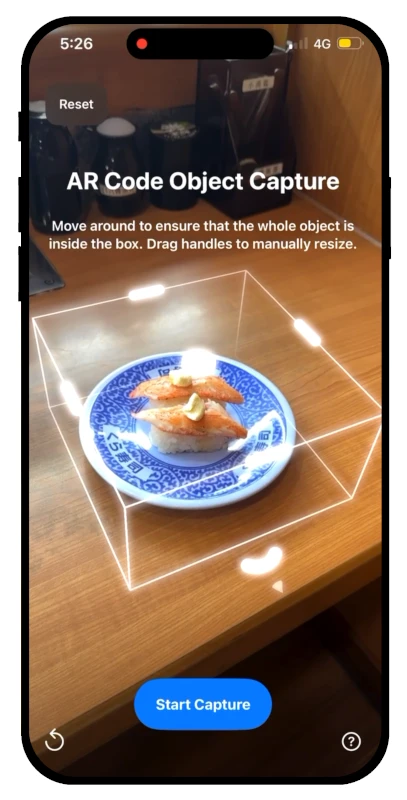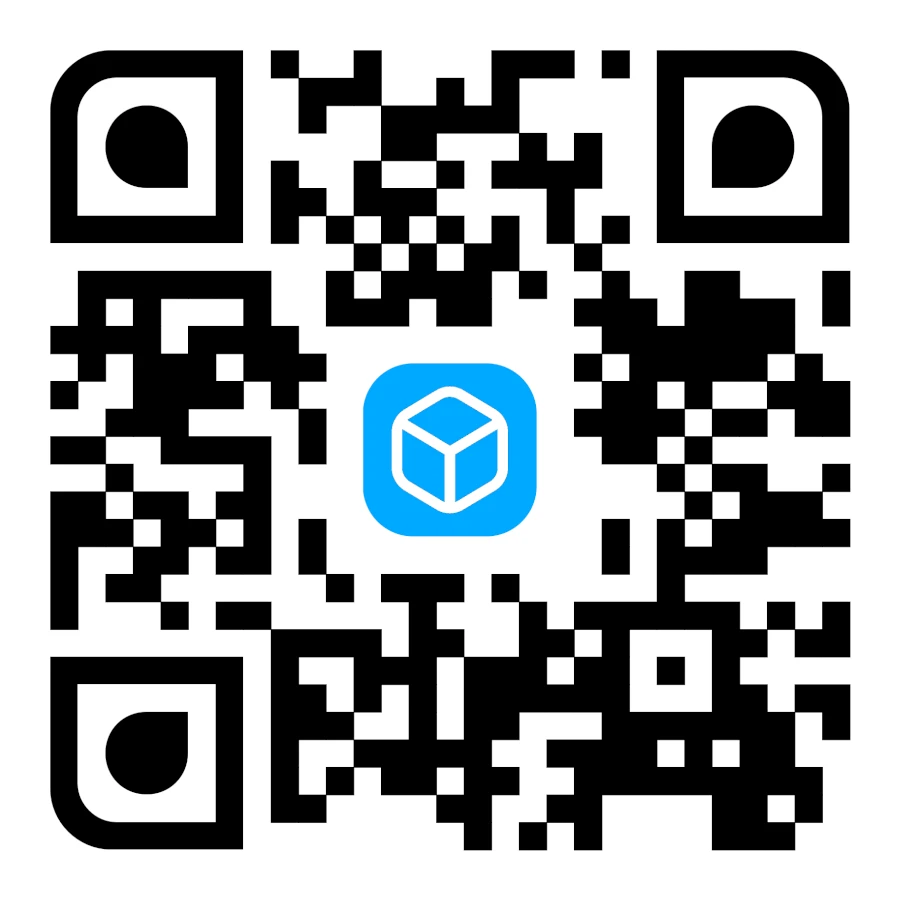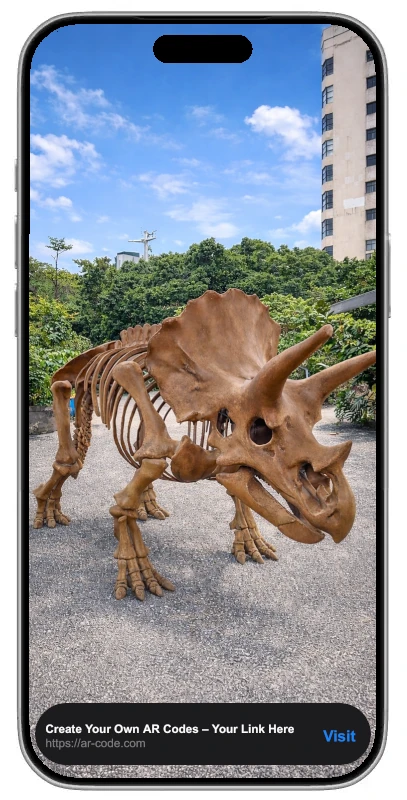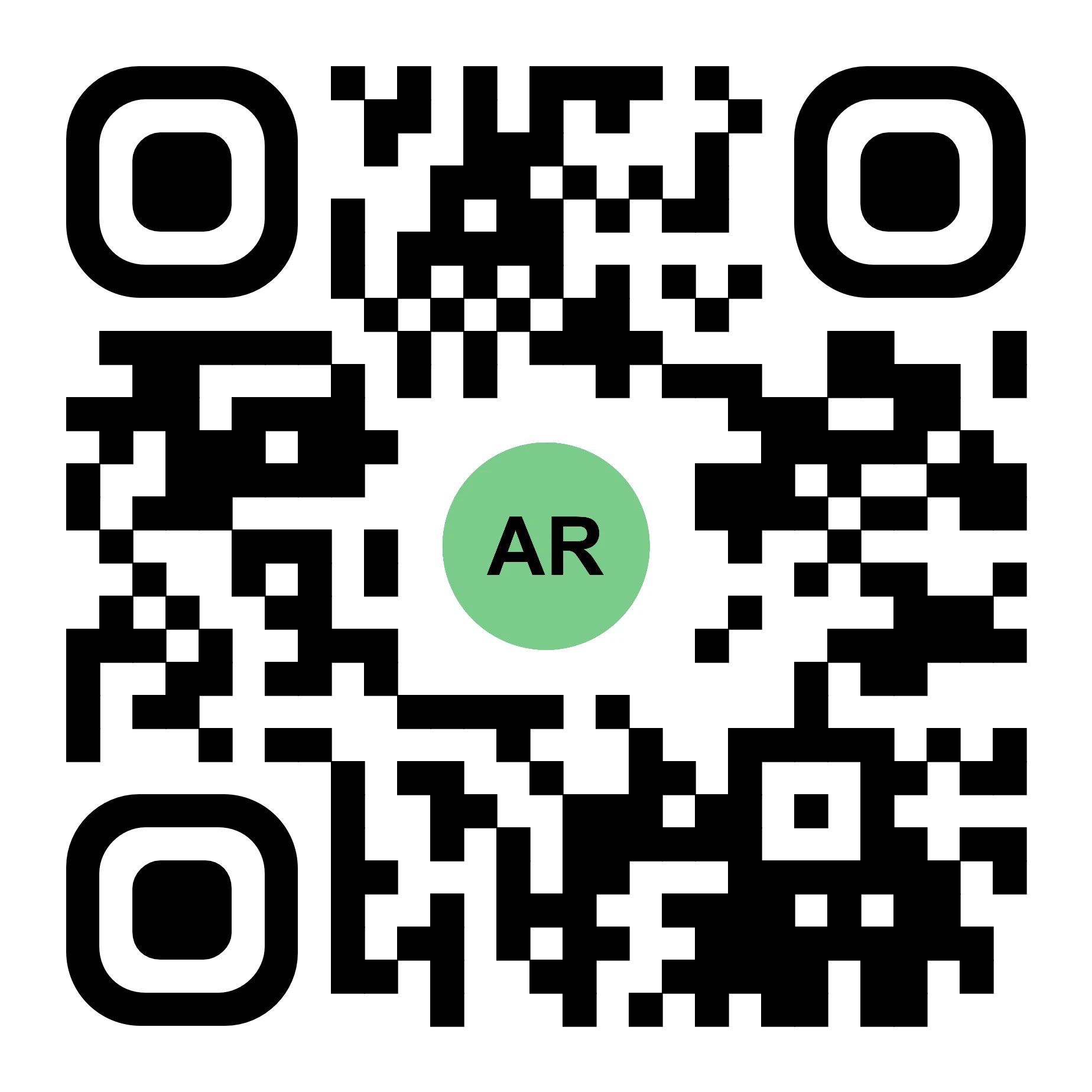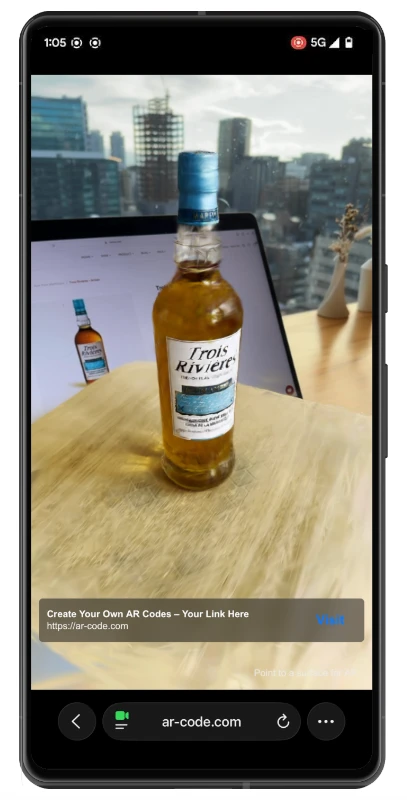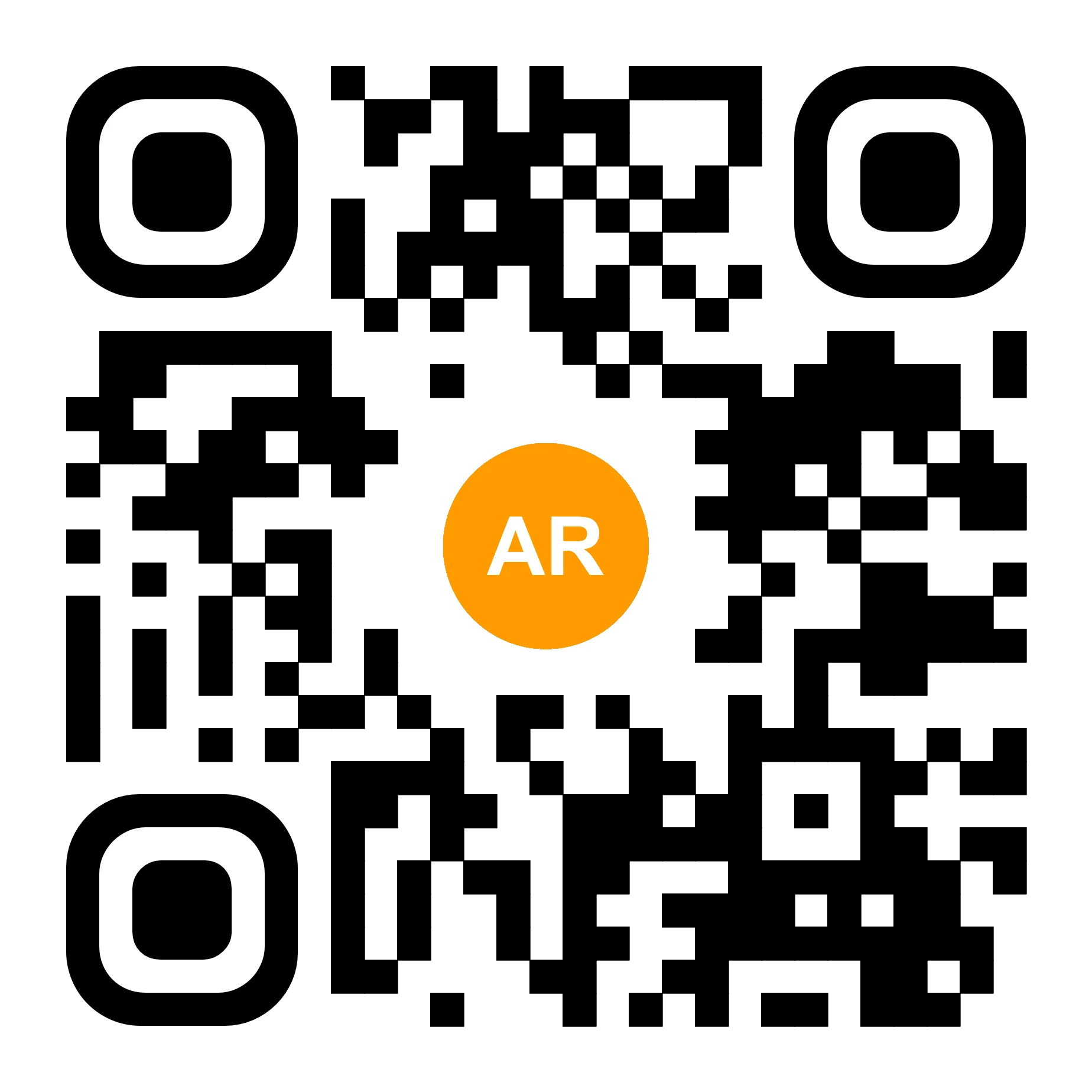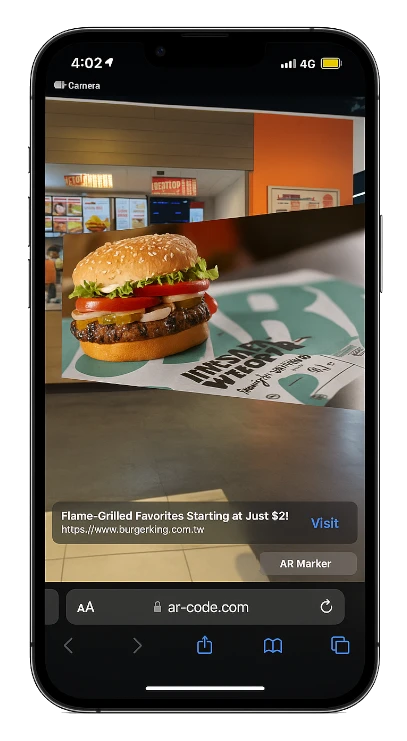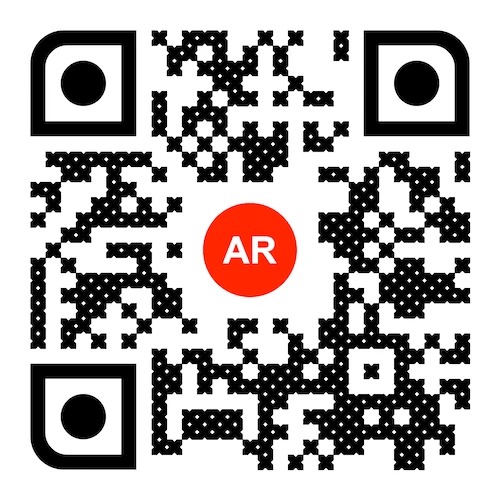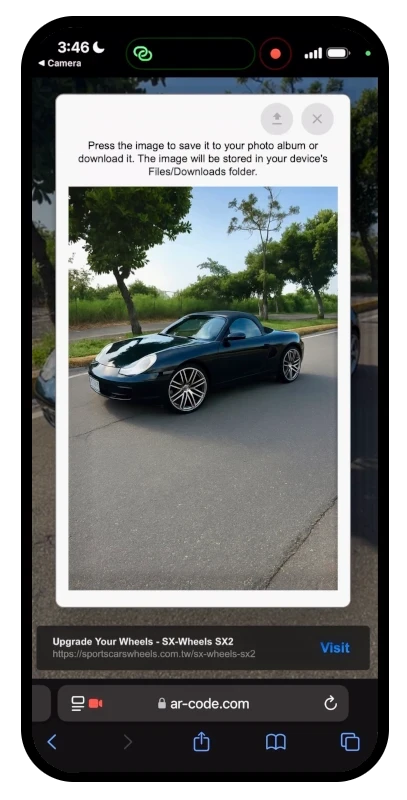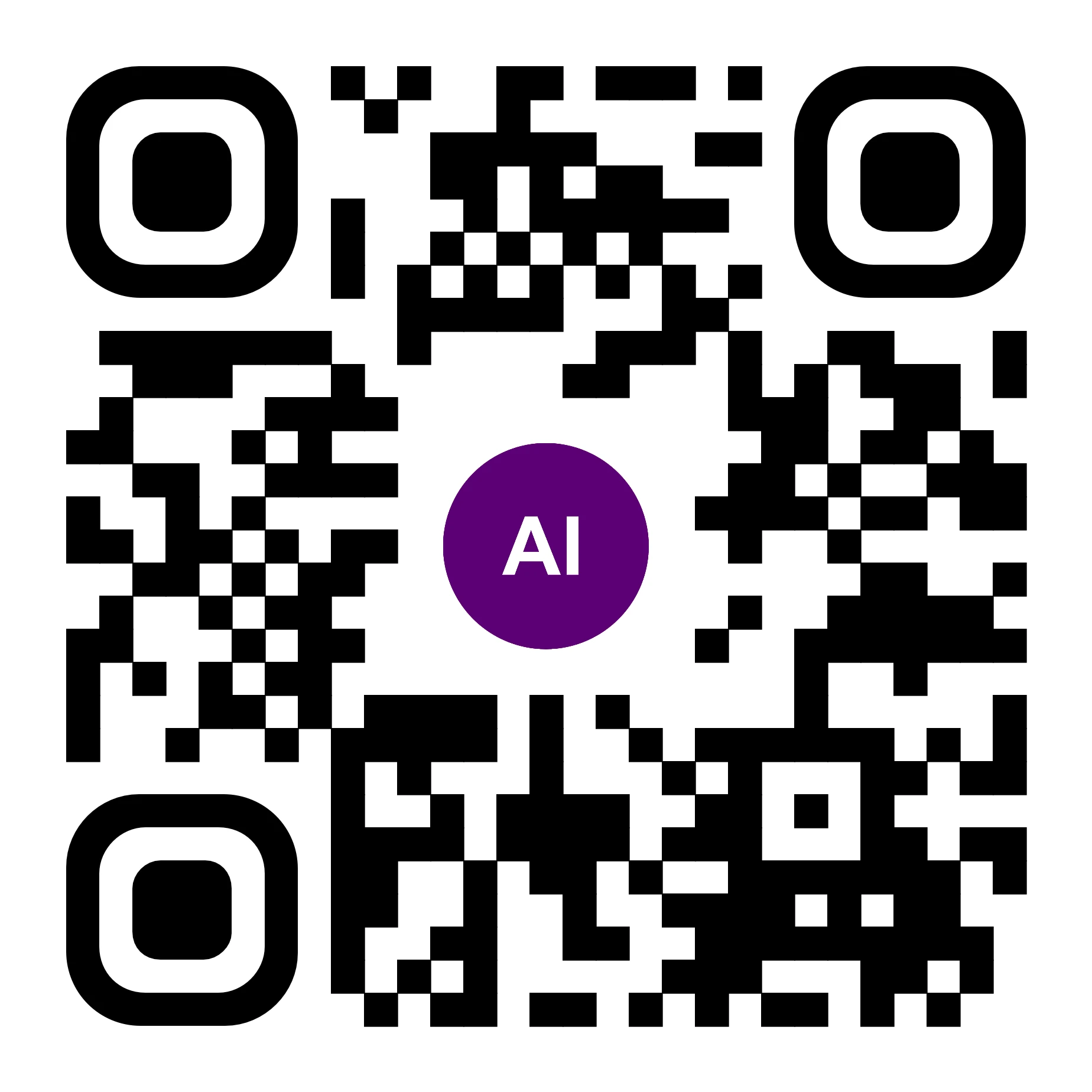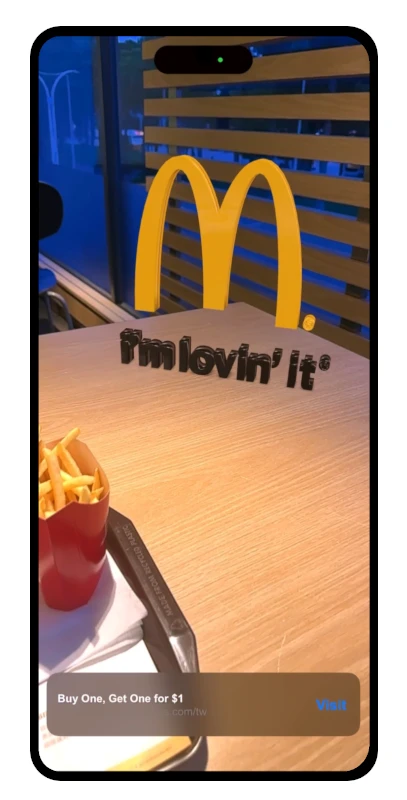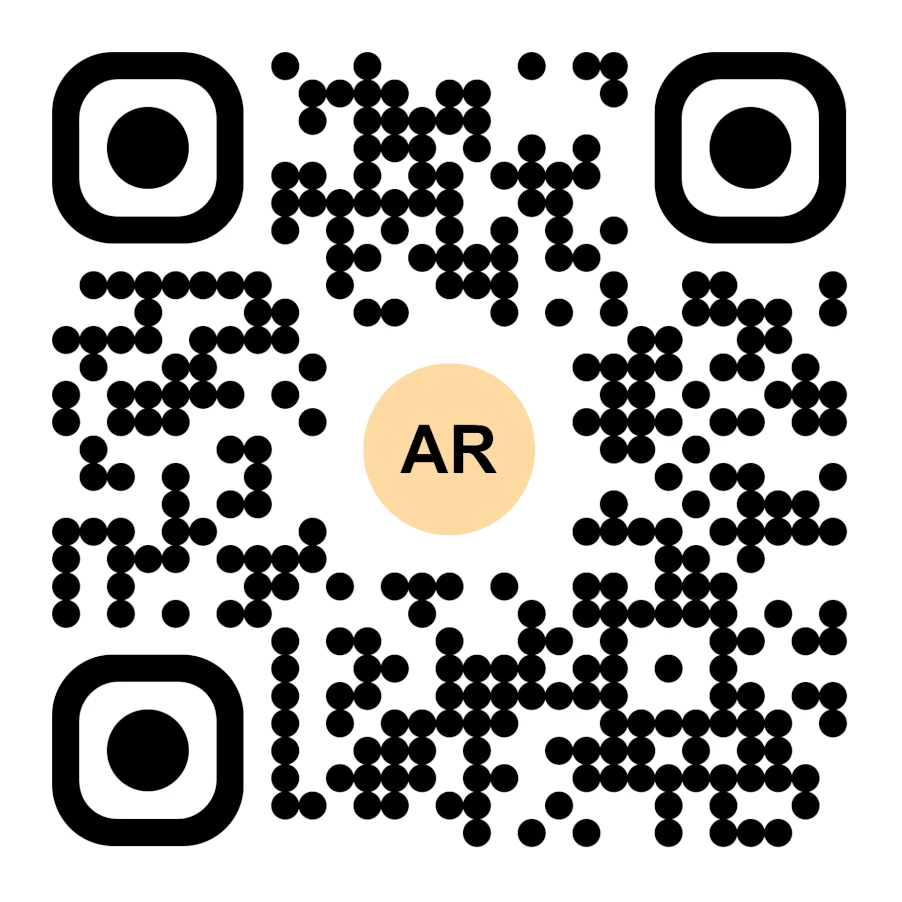Tilpass dine AR-koder med innovative designalternativer
AR Code Tech | 21/02/2026 |
AR Codes forvandler hvordan bedrifter engasjerer kunder ved å bygge bro mellom fysiske produkter, trykt materiell og digitalt innhold til dynamiske utvidet virkelighet-opplevelser. På AR Code SaaS-plattformen går AR Codes utover tradisjonelle QR-koder med avansert visuell tilpasning. Disse neste generasjons kodene blir interaktive digitale eiendeler som bygger merkevaresynlighet og målbar brukerengasjement. Når kunder skanner en AR Code, får de umiddelbart tilgang til oppslukende AR-innhold som styrker merkevareinteraksjon og lojalitet. For mer informasjon om hvordan AR Codes sammenlignes med QR-koder, les nøkkelforskjeller mellom QR Code og AR Code.
Løft virksomheten din med AR Code SaaS-løsninger designet for kraftig AR-markedsføring, emballasjeinnovasjon og kundeopplevelse. Oppdag hvordan markedsføringsbyråer bruker AR Code for å lage engasjerende kampanjer og levere målbare resultater for kunder.
1. Fargevelger: Tilpass merkevarefargene
Bruk AR Code fargevelgeren for å tilpasse koder etter merkevarepaletten og kampanjens visuelle temaer. Gå utover sort og hvitt ved å velge dristige eller subtile toner som resonnerer med merkevaren og publikums intensjon. For en unik introduksjon, se hvordan du kan legge til engasjerende AR Codes på visittkortene dine.
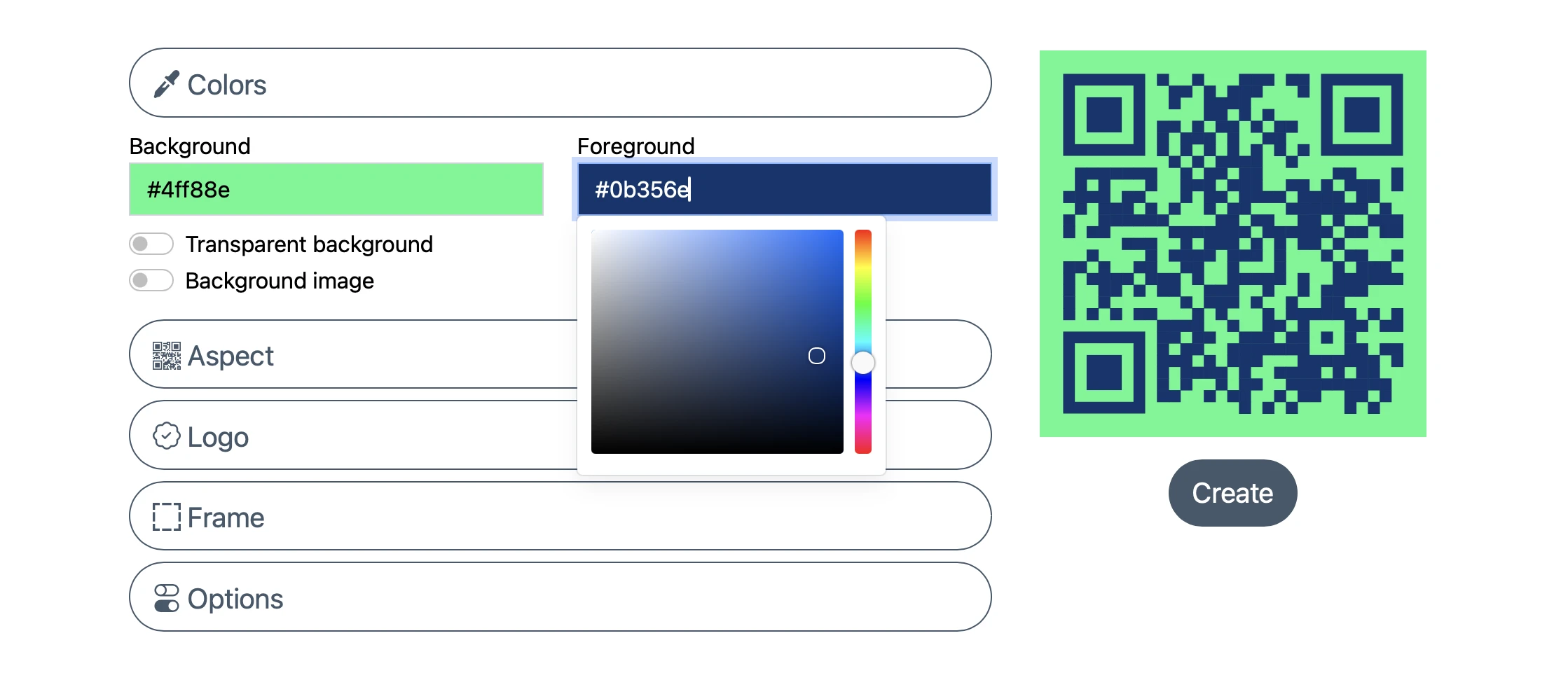
Bland bakgrunns- og forgrunnsfarger for å lage AR Codes som fanger kundenes oppmerksomhet gjennom kampanjer, emballasje eller nettbaserte eiendeler. Sikre sømløs skanning og konsistent merkevare for profesjonelle og sammenhengende interaksjoner.
2. Gradientforgrunn og transparent bakgrunn: Rike visuelle uttrykk
Øk engasjementet med gradientforgrunner som gir AR Codes et moderne utseende og dybde, og styrker din visuelle identitet ved hver skanning.
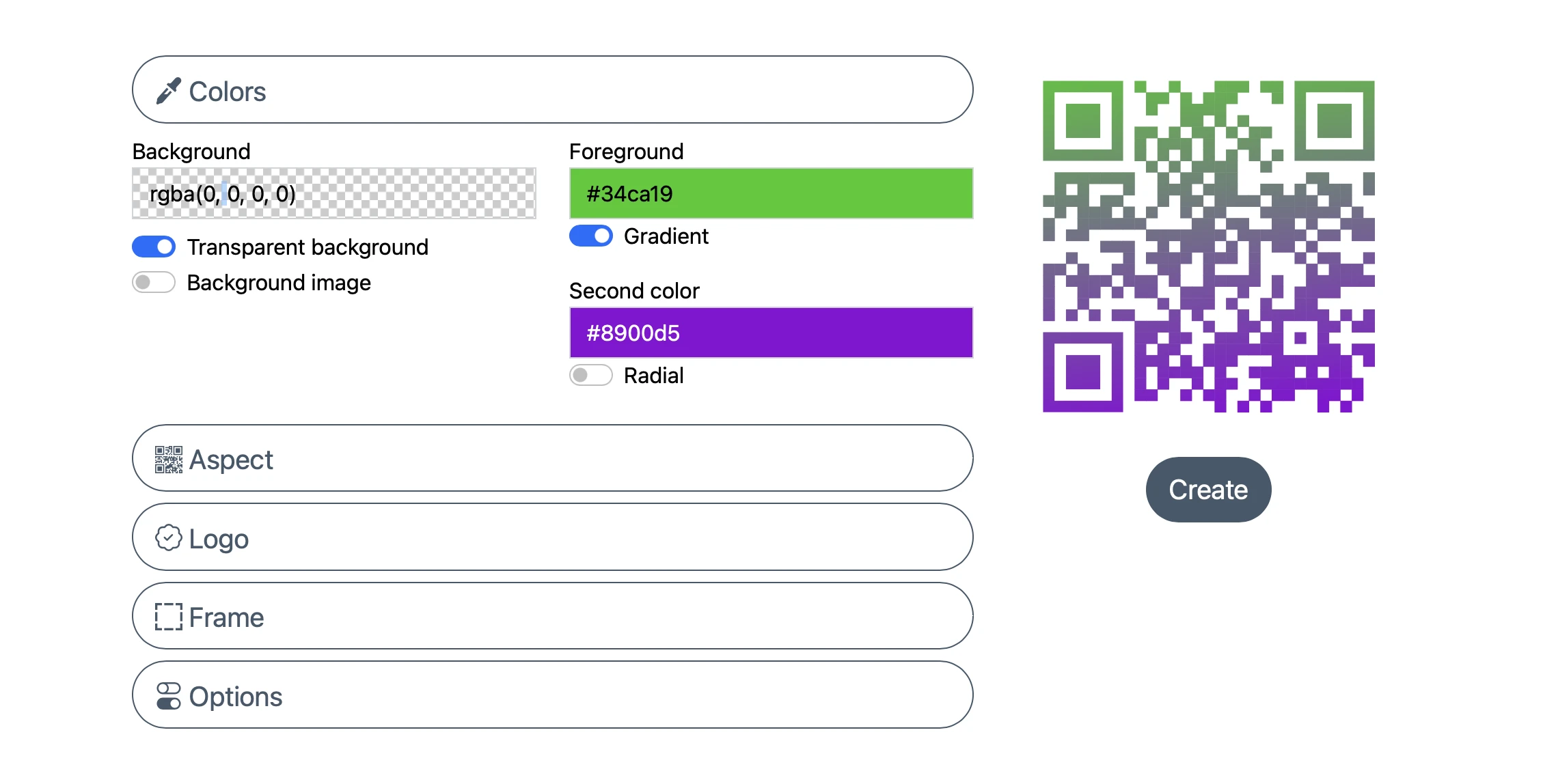
Med transparente bakgrunner blir AR Codes enkle å integrere på nettsteder, trykk og produktdesign, og gir kommunikasjonen din en enhetlig, kreativ og eksklusiv stil.
3. Avanserte QR-kodemønstre: Skil deg ut
Velg avanserte QR-kodemønstre for å forsterke merkevarens unike personlighet. Tilpassede mønstre gjør AR Codes visuelt distinkte samtidig som de sikrer nøyaktig og rask skanning.
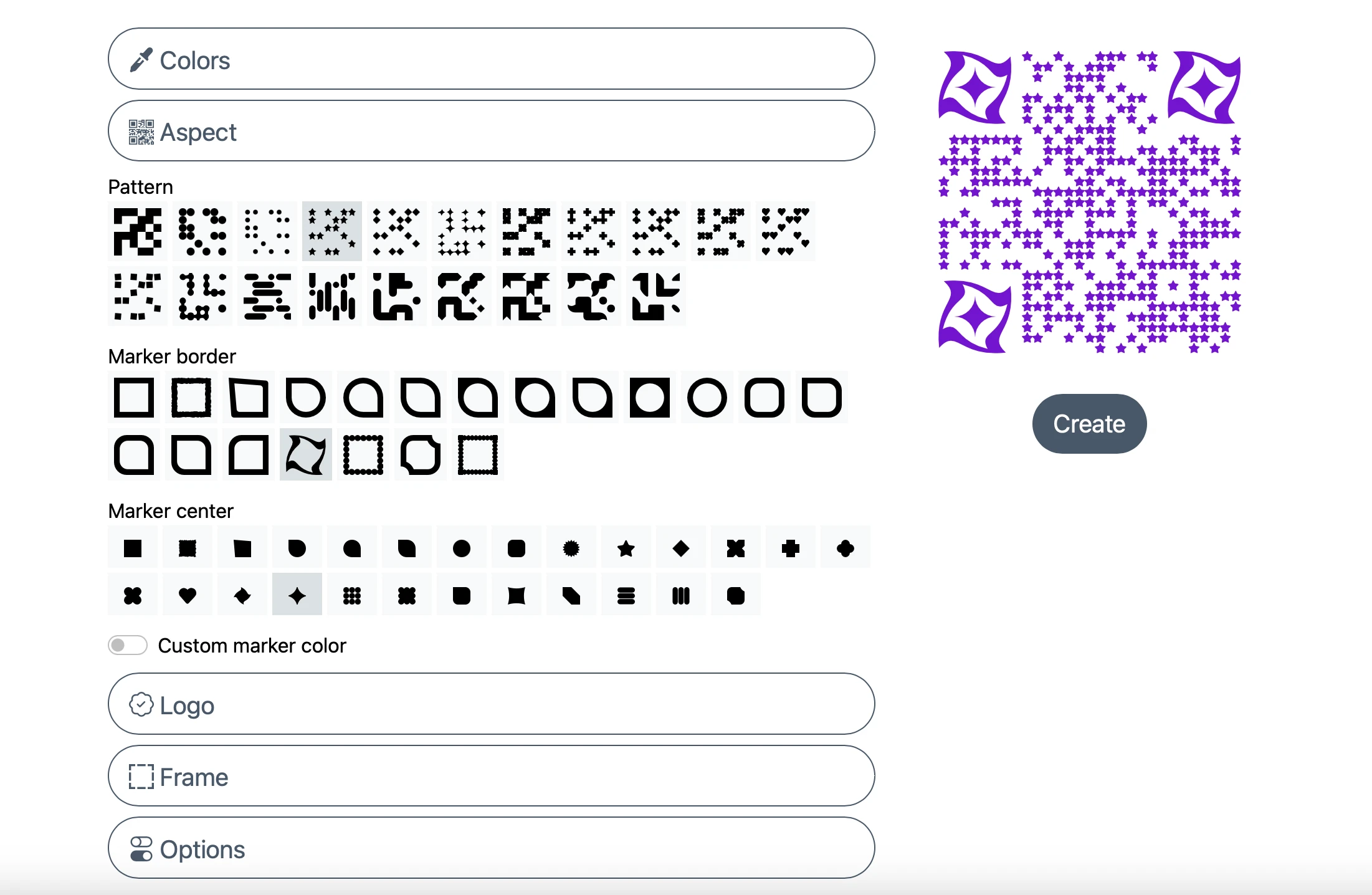
Tilpass kanter, sentre og hjørner med logoen din eller kreative aksenter. For praktisk inspirasjon, se AR Codes påvirkning på drikkevareemballasje og reklame.
4. Egendefinerte rammer: Øk skanningsraten
Tiltrekk umiddelbar oppmerksomhet med egendefinerte rammer som fremhever AR Codes på plakater, produktpakninger eller digitale kanaler. Rammer bidrar til å øke skanningsfrekvens og publikumsinteraksjon.
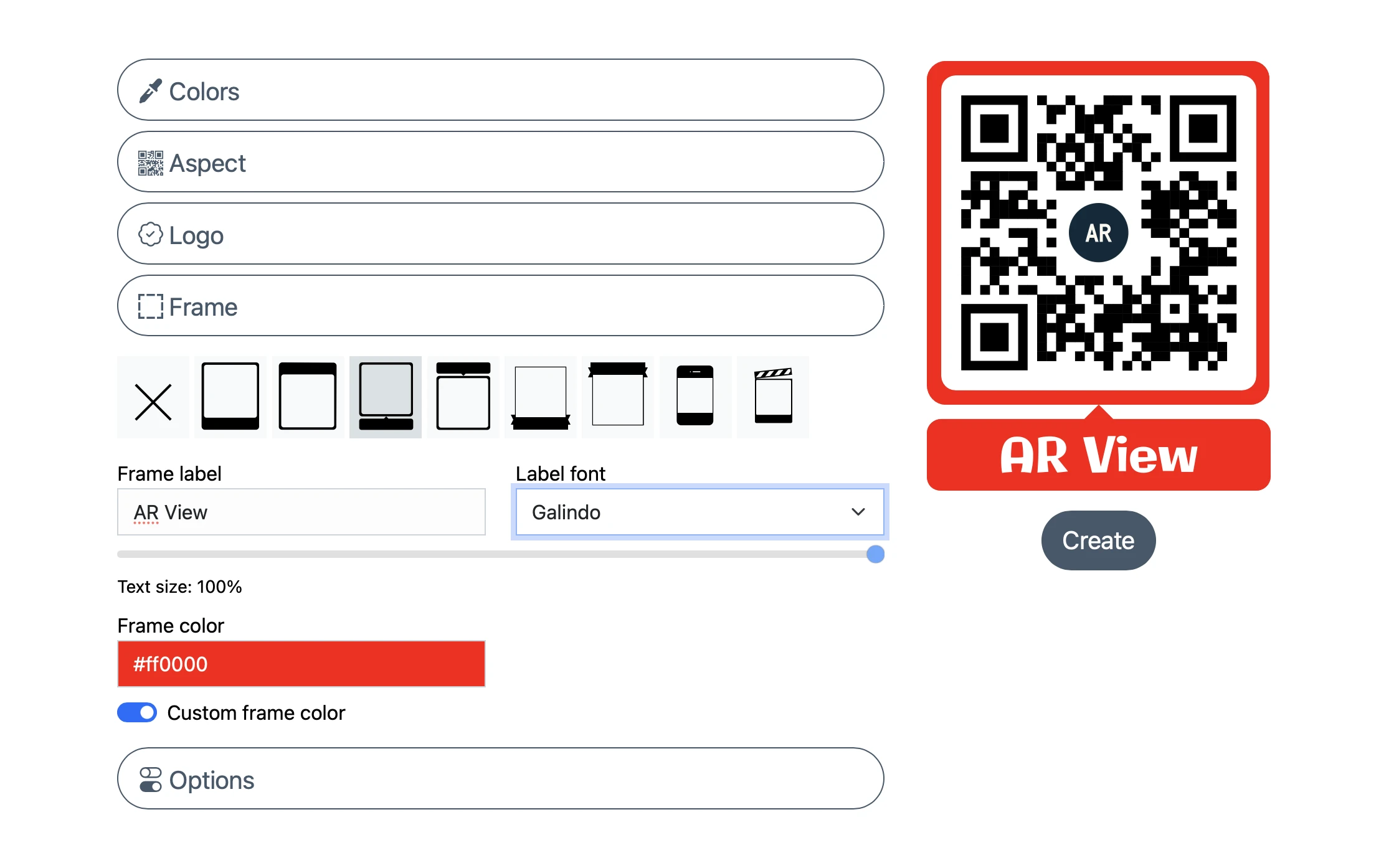
Bruk sterke oppfordringer eller tydelige merkelapper for å styrke brukeropplevelse og merkevarebudskap. For avansert kampanjeanalyse, lær hvordan du kan spore og retargetere AR Code-brukere.
5. Bildeopplaster: Forsterk merkevaren
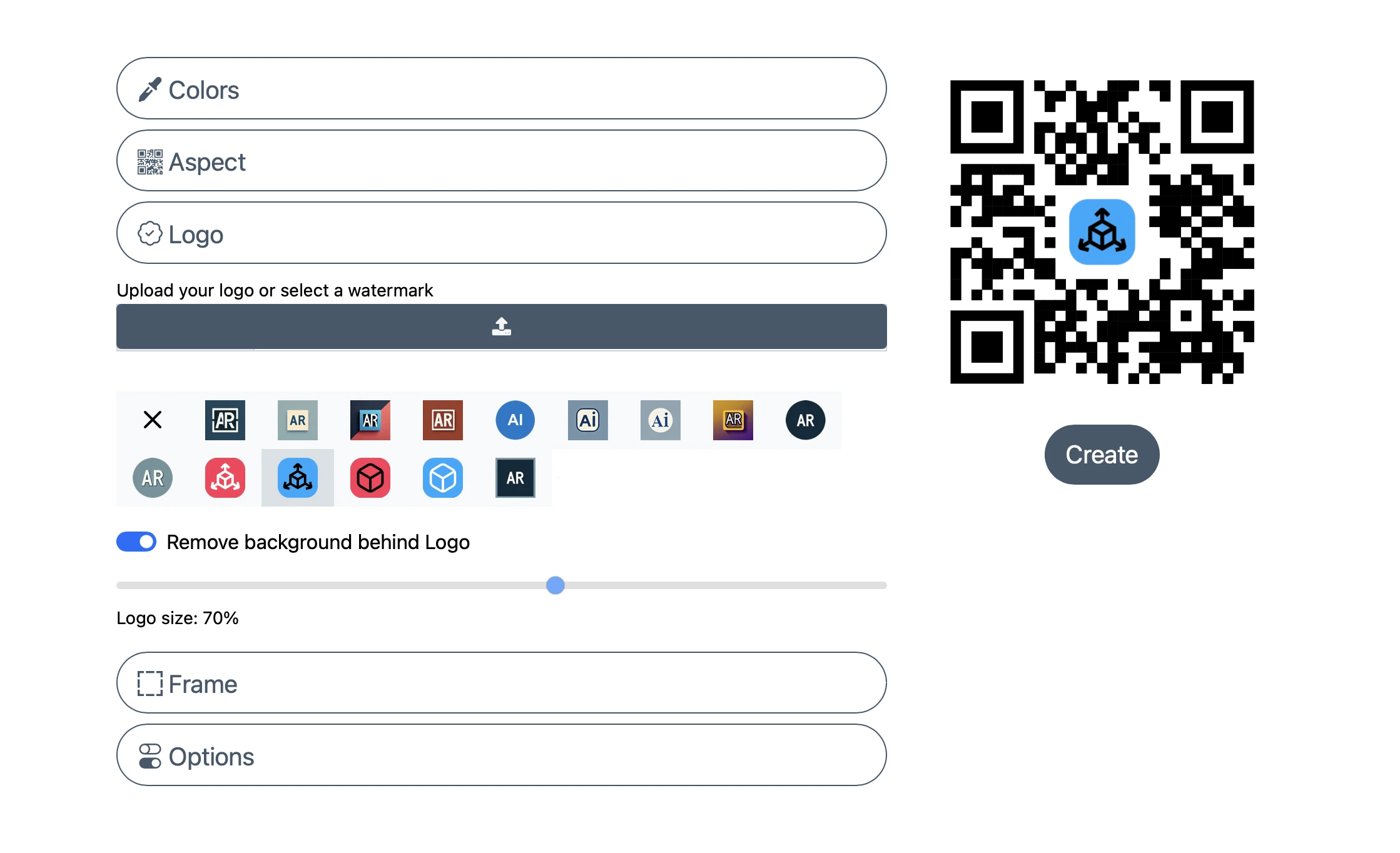
Legg til selskapets logo eller visuelle elementer direkte på AR Codes. Bildeopplasteren sikrer at hver AR Code styrker merkevaren din på alle kundepunkter.
6. Eksporter i flere formater (.png, .svg, .pdf)
Last enkelt ned AR Codes som PNG (høy oppløsning), SVG (skalerbar vektorgrafikk) eller PDF (klar for trykk). Denne fleksibiliteten gir smidig implementering i trykk, web, emballasje eller markedsføring.
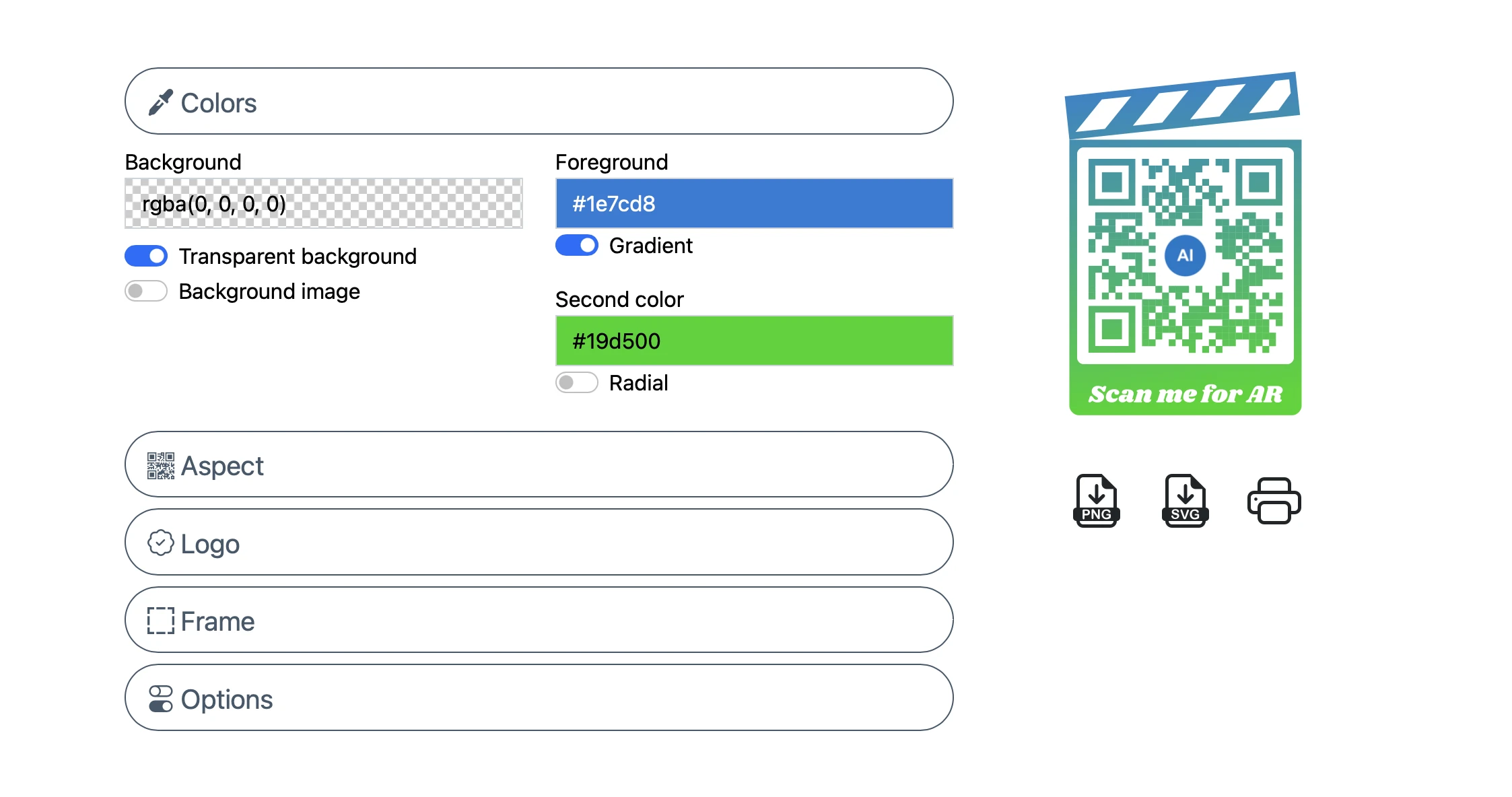
Forhåndsvis AR Code-design før kampanjelansering for garantert designkvalitet og optimal skanneytelse.
Nyhet: Generer 3D AR fra ett enkelt bilde
AR Code introduserer nå den innovative AR GenAI-løsningen, som lar deg lage engasjerende 3D AR-opplevelser fra kun ett bilde av et hvilket som helst objekt. Denne banebrytende funksjonen gir rask 3D-visualisering til produktkampanjer, emballasje og interaktiv markedsføring.
Konklusjon: Oppnå resultater med tilpassede AR Codes
Superlad markedsføringen med AR Code SaaS for bedrifter. Plattformens tilpasningsverktøy gjør det mulig for bedrifter å skape visuelt engasjerende og interaktive AR-kampanjer som konverterer, bygger lojalitet og øker engasjement. Klar til å starte? Se hele AR Code SaaS bedriftsguide for din komplette løsning.
Lås opp mer kundelojalitet ved å kombinere interaktive AR-opplevelser, kraftig merkevaretilpasning og analyser på neste nivå. Bruk AR Codes til å drive innovasjon og styrke alle kundeforhold i dag.
Ofte stilte spørsmål
Hvordan kan jeg tilpasse AR Codes med farger og gradienter?
Bruk Fargevelgeren for enkelt å matche AR Code-farger til din merkevare. Legg til gradientforgrunner for mer visuell appell og bruk transparente bakgrunner slik at kodene passer inn i ethvert design. For steg-for-steg tips og innsikt om tilpassede AR-koder og skanning, besøk denne veiledningen til AR Code skanning og tilpasning.
Hva er avanserte QR-kodemønstre, og hvordan forbedrer de AR Codes?
Avanserte QR-kodemønstre skaper et unikt merkevareutseende og sikrer samtidig nøyaktig skanning. Design markeringshjørner med tilpassede visuelle elementer eller logoer for å skille deg ut. Finn mer informasjon i oversikten over QR Code og AR Code funksjoner.
Hvordan kan jeg legge til rammer, merkelapper eller logoer på mine AR Codes?
Legg til egendefinerte rammer, tydelige instruksjonsmerker og logoen din direkte i AR Codes for å forbedre synlighet og gjenkjenning. Se hvordan merkevarer skaper engasjement med tilpassede AR-logoer og oppslukende opplevelser.
AR Code Tech - Siste blogginnlegg
AR GenAI: Gjør et enkelt bilde om til en AR-klar 3D-modell
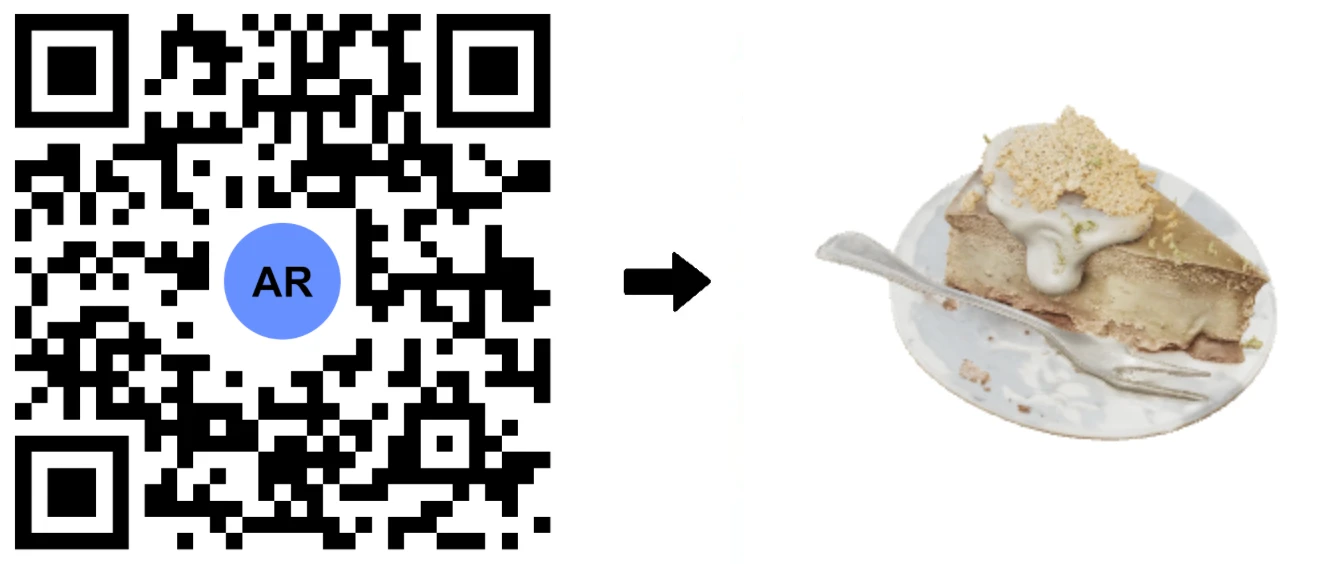
Lås opp kraften i AR GenAI, den banebrytende bilde-til-3D-løsningen fra AR Code, nå tilgjengelig på AR Code SaaS-plattformen. Med AR GenAI kan bedrifter gjøre om et enkelt produktbilde til en interaktiv 3D-modell for umiddelbar visning i utvidet virkelighet. Det er ikke behov for apper, 3D-skanning eller...
AR Splat: En ny 3D-skanning til utvidet virkelighet-løsning basert på Gaussisk Splatting
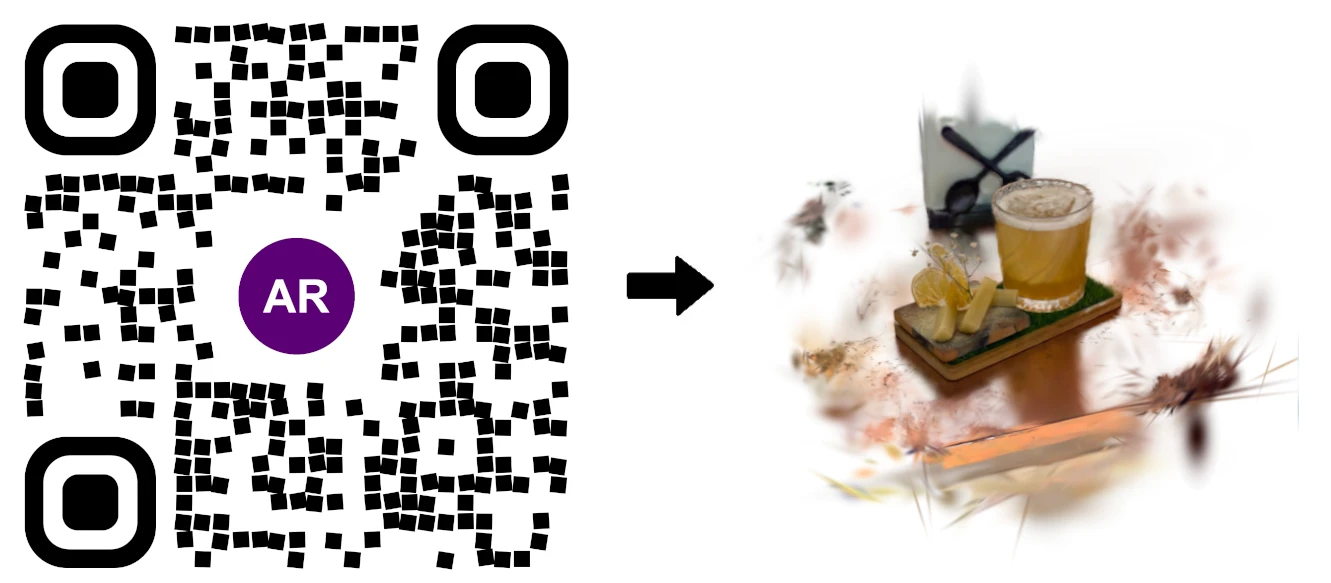
AR Splat by AR Code er den komplette SaaS-løsningen for bedrifter som ønsker rask, engasjerende 3D-innholdsskaping gjennom nettbasert utvidet virkelighet. Ved å laste opp en enkel 60-120 sekunders rundt-om-video, genererer AR Splat umiddelbart en foto-realistisk 3D-scene ved hjelp av banebrytende Gaussian...
AI Codes bildegenerering redefinerer produktvisualisering gjennom en QR-kodeskanning
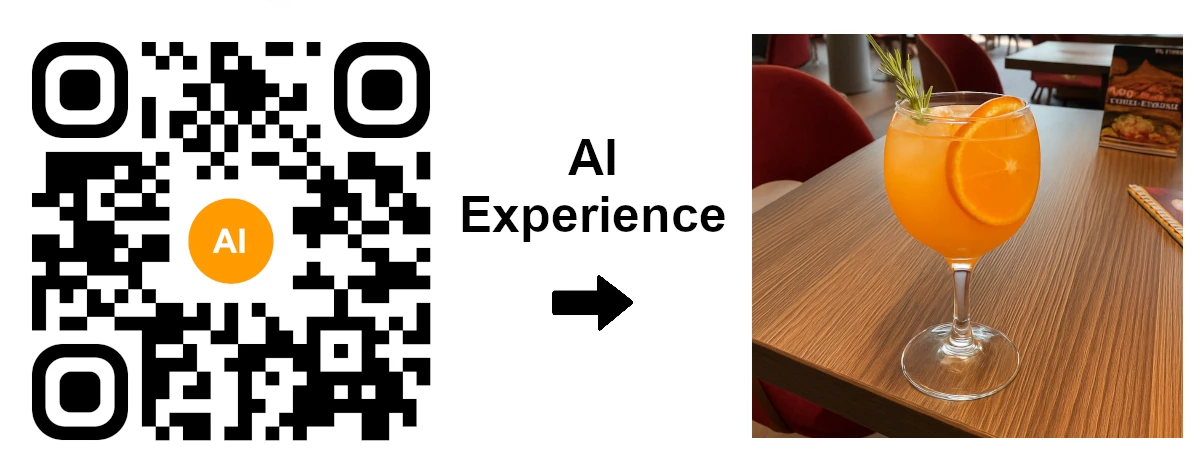
AR Code revolusjonerer Augmented Reality (AR) og Kunstig Intelligens (AI) for bedrifter med umiddelbare AI-genererte visualiseringer som er tilgjengelige gjennom en enkel skanning av QR-kode. Maksimer engasjementet med AI Code for din bedrift og øk kundeinteraksjonen ved å bruke oppslukende, nettbaserte...
AR Code Object Capture fungerer nå på alle iPhone og iPad – ingen LiDAR nødvendig
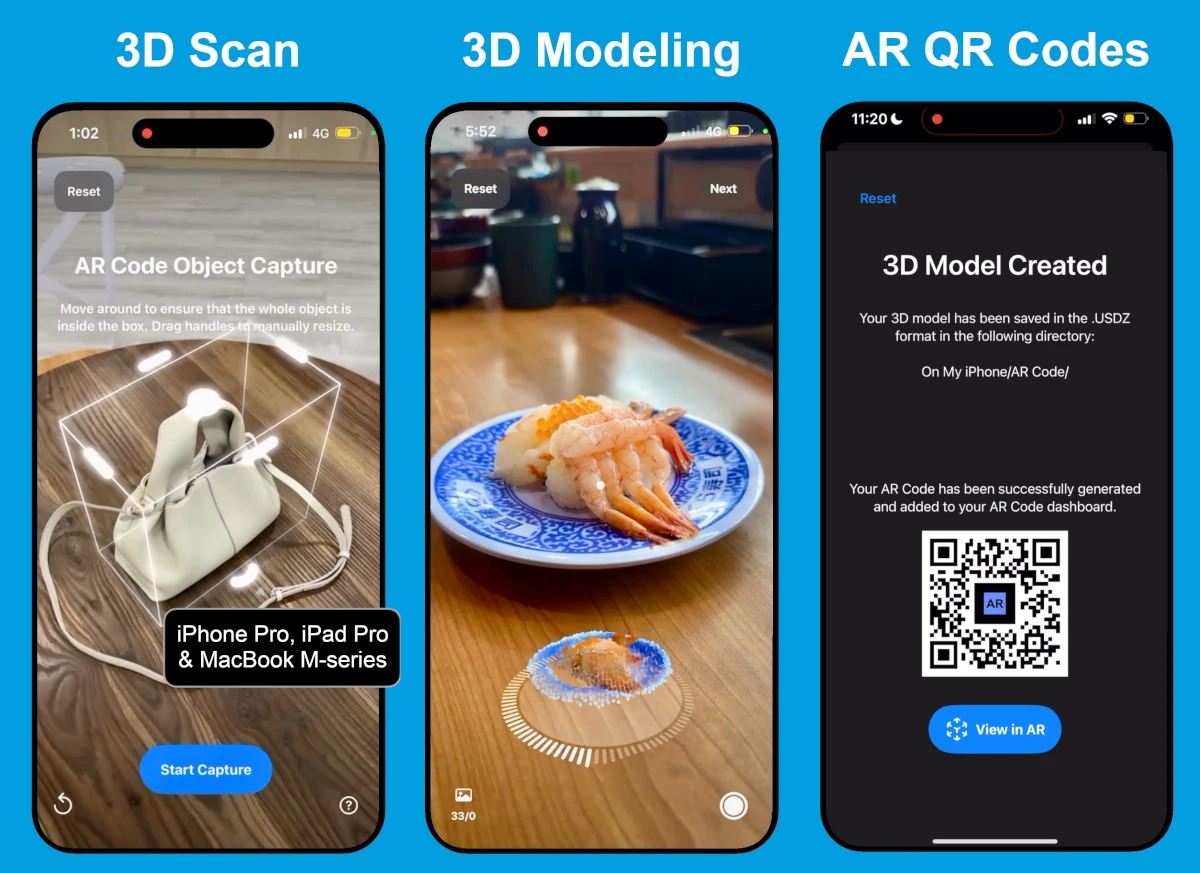
Superlad virksomheten din med engasjerende utvidet virkelighet ved hjelp av AR Code Object Capture appen. Fang og skap sømløst 3D-modeller sammen med AR QR-koder på hvilken som helst iPhone eller iPad – ingen LiDAR nødvendig. Forenkle digitale arbeidsflyter, øk kundens engasjement og lever interaktive...
3D-skanning fra video er nå tilgjengelig på AR Code-nettgrensesnittet
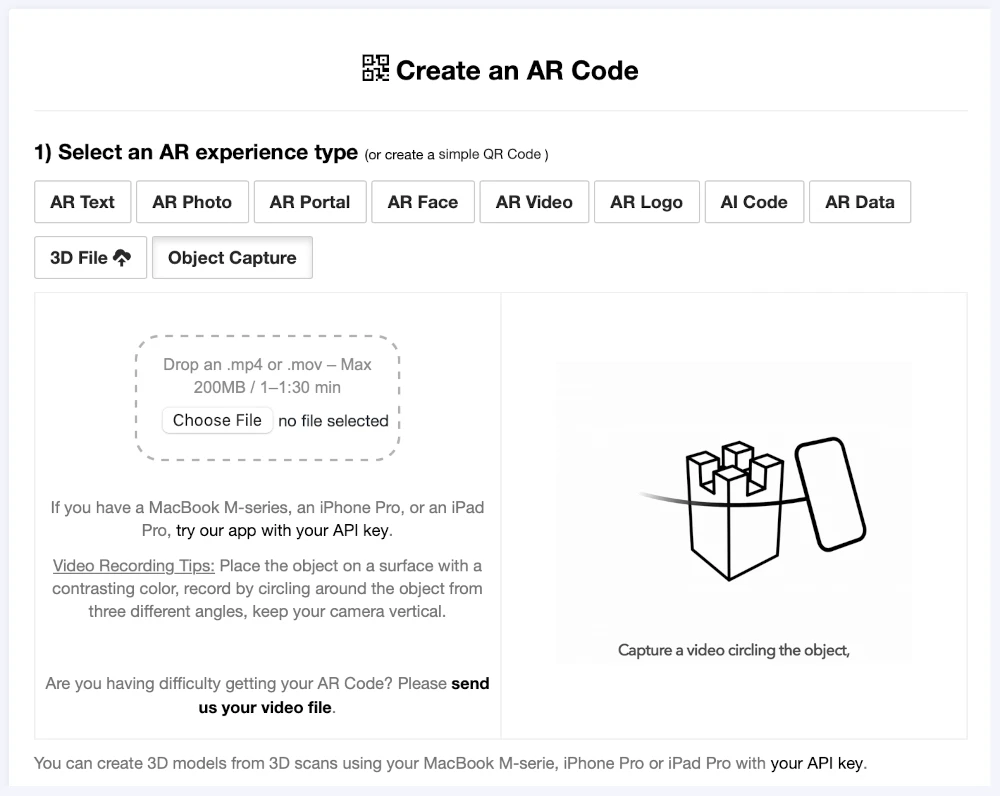
Framskynd virksomheten din inn i neste æra med digital engasjement med den avanserte AR Code Object Capture-løsningen. Vert på vår nettplattform, gir AR Code selskaper mulighet til å lage oppslukende innhold i utvidet virkelighet fra enkle videobaserte 3D-skanninger. Forvandle merkevareengasjement og...
Guide til 3D-skanning med vår "AR Code Object Capture"-løsning

Fremskynd din bedrifts digitale transformasjon med AR Code Object Capture, en kraftig SaaS-plattform for 3D-skanning og oppslukende utvidet virkelighet-opplevelser. Stolt brukt av ledende organisasjoner, leverer AR Code presis 3D-modellering for markedsføring, netthandel, produksjon og engasjerende...
Fra Video til 3D-modellering: Fotogrammetri med AR Code Object Capture på MacBook M-serien
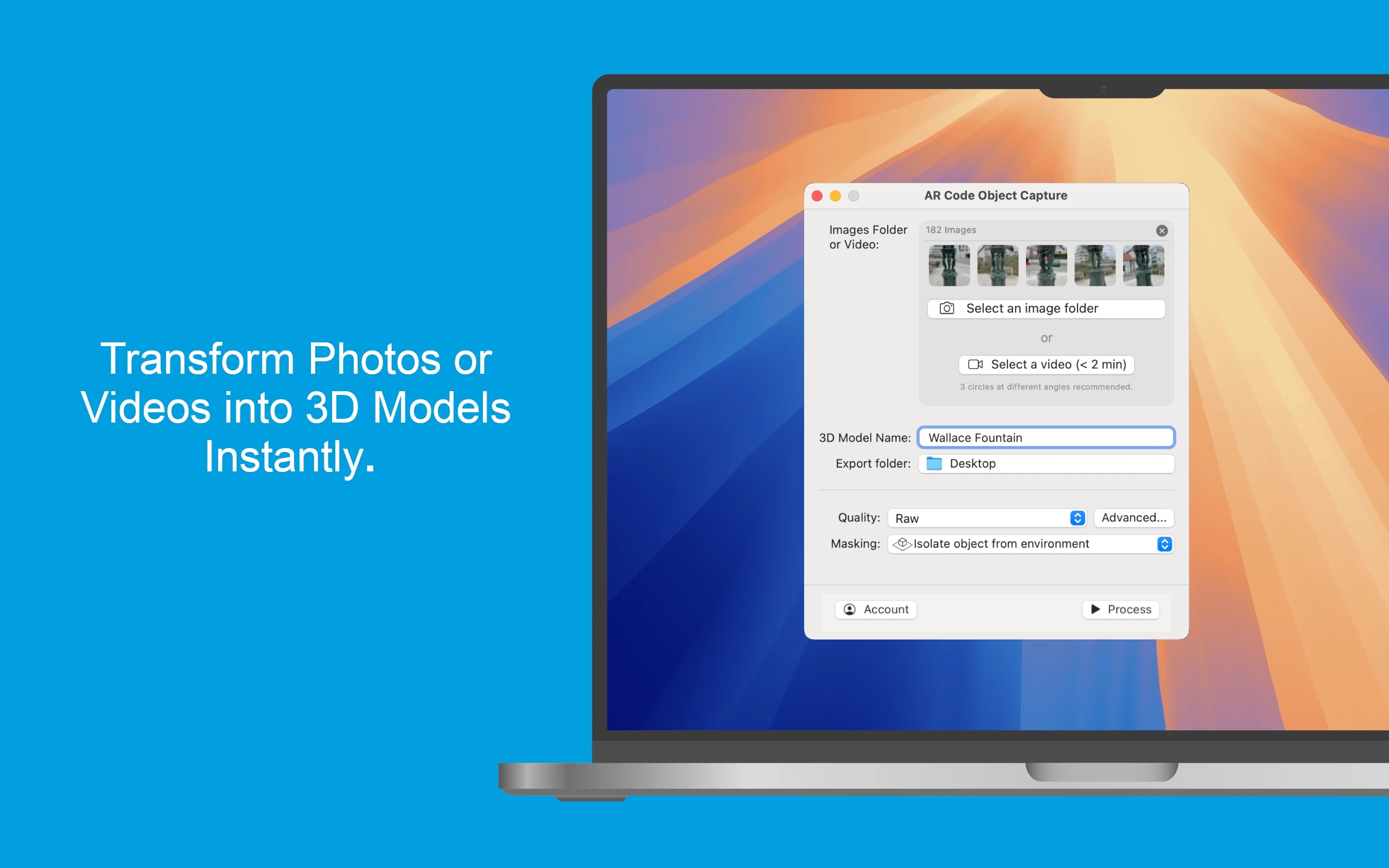
Styrk veksten til din bedrift med den innovative AR Code Object Capture appen, den ultimate 3D-skannings- og augmented reality SaaS-plattformen for bedrifter. Den er spesielt utviklet for MacBook M-serien (macOS 15.0+), og denne appen gjør fysiske produkter om til engasjerende 3D-modeller og AR QR Codes i løpet av...
AR Codes strømgjerrige SLAM: Utvidet virkelighet for alle, overalt
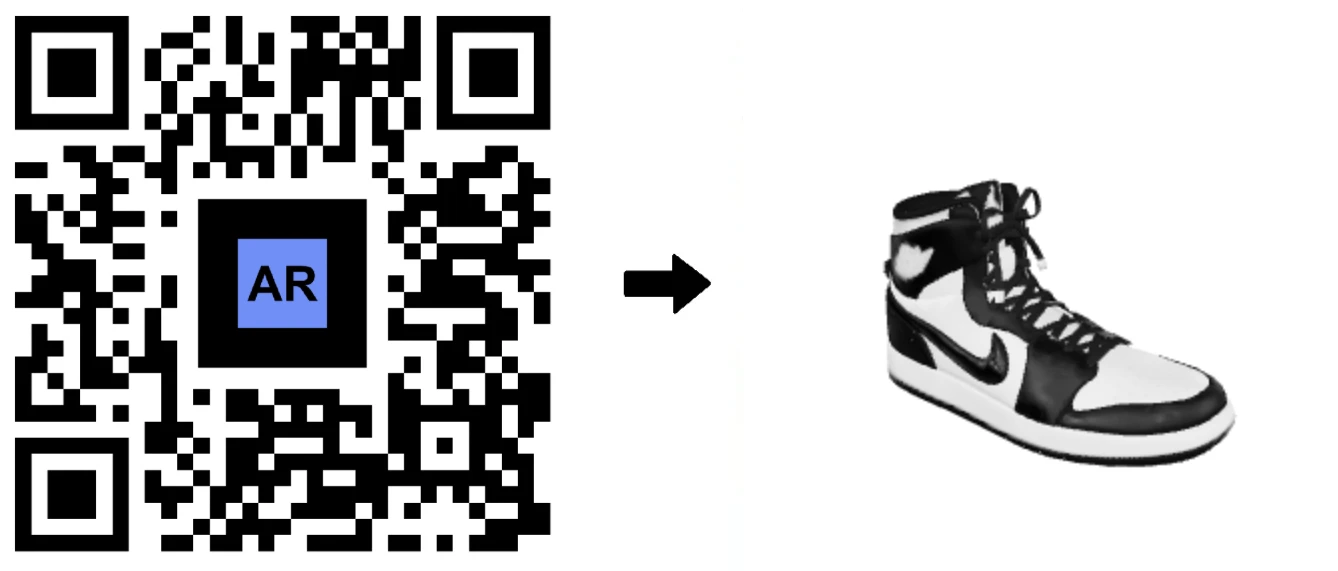
Akselerer veksten i virksomheten din med AR Code, den ledende SaaS-plattformen for nettbasert utvidet virkelighet (Augmented Reality). AR Code gir selskaper muligheten til å levere dynamiske AR-opplevelser tilgjengelige på alle enheter, fra avanserte smarttelefoner til rimelige Android-modeller. Ved å bruke...
Revolusjoner din nettbutikk med 3D-skanninger ved hjelp av AR Code Object Capture-appen

I dagens stadig utviklende e-handelsmarked er det avgjørende for merkevarer å levere oppslukende og interaktive handleopplevelser. Kunder forventer nå å oppleve produkter virtuelt, like levende som i en fysisk butikk. AR Code gir bedrifter muligheten til å overgå forventningene med banebrytende Augmented...
AR Face Filter-oppretting forenklet: Øk merkevareengasjement med AR QR-koder
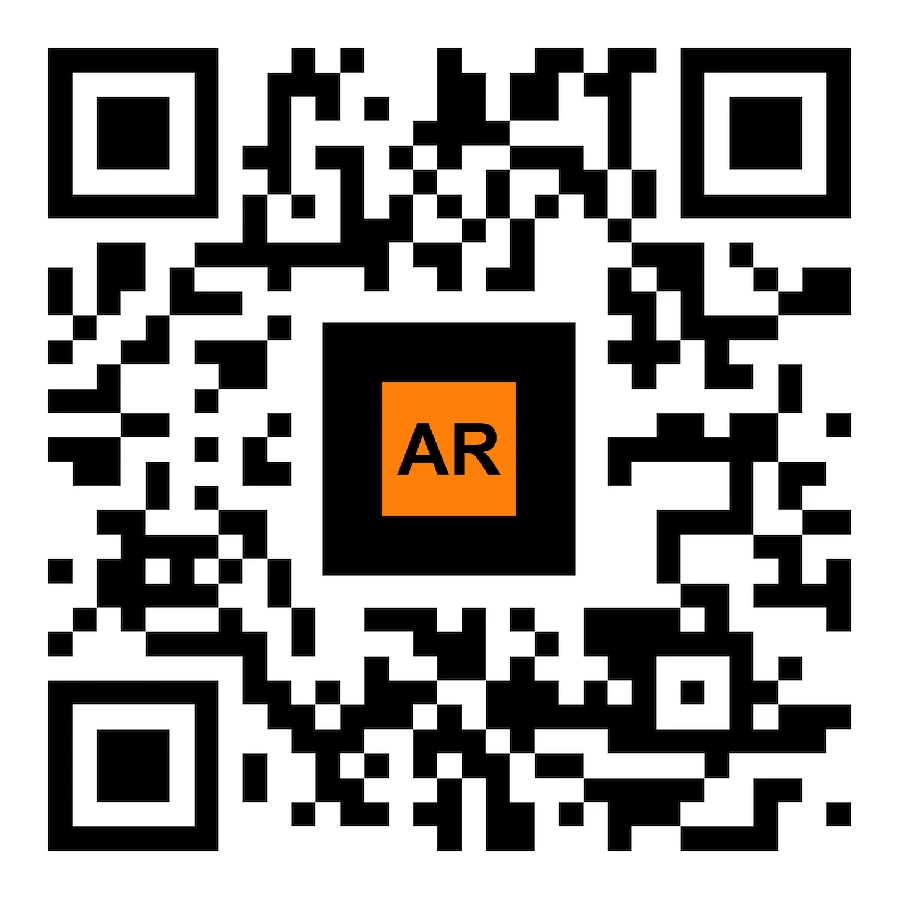
Øk synligheten til merkevaren din og superlad markedsføringskampanjene dine med AR Face Filter, en avansert augmented reality SaaS-løsning fra AR Code. Prosjiser enkelt logoen eller bildene dine på brukernes ansikter drevet av den nyeste AR- og AI-teknologien. Utviklet for idrettslag, arrangementsarrangører,...
167,720 AR experiences
587,394 Skanner per dag
133,814 Skapere
